

We may earn revenue from the products available on this page and participate in affiliate programs. Learn More ›
Home Advice You Can Trust
Tips, tricks & ideas for a better home and yard, delivered to your inbox daily.
By signing up you agree to our Terms of Service and Privacy Policy.
Plan Ahead

Planning is a critical component of any renovation or repair project, whether you’re hiring a contractor or tackling it yourself. Begin by assessing the scope of the project, which includes determining the materials needed, setting a budget that incorporates a 10 to 25 percent cushion for unanticipated expenses, and establishing a realistic timeline. Even if you’re planning a DIY renovation, you might want to consult a contractor for a second opinion, which could save you from making costly and time-consuming mistakes.
Avoid Anything Too Trendy
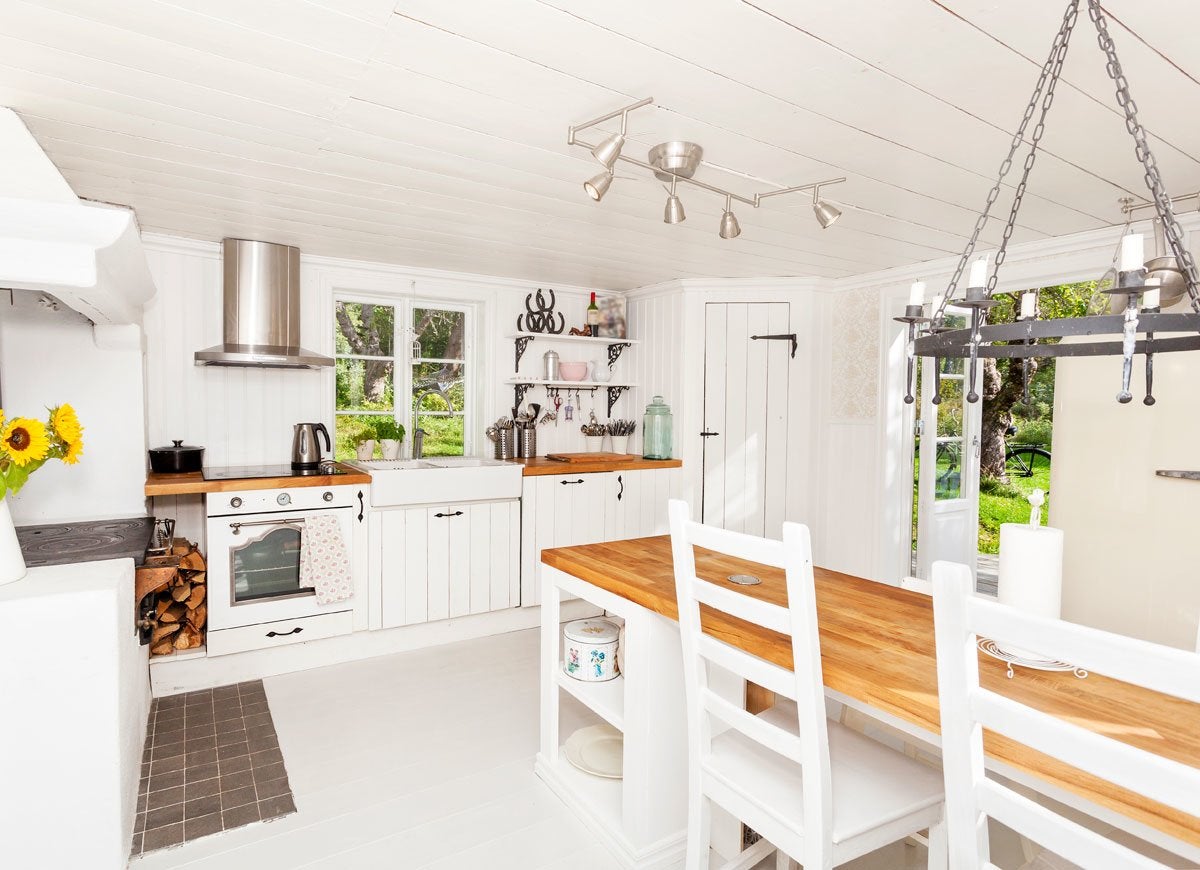
Sure, design magazines are full of chic colors and current crazes, but your home is an investment that needs to stand the test of time. Pay attention to the overall style of your home, and plan your renovations accordingly. Don’t try to graft Victorian trim onto a contemporary roofline or spoil the Spanish ambience of your Southwestern structure. You can always incorporate design details to add personality, but make certain that the accents complement the basic architecture of your home.
Set a Realistic Budget
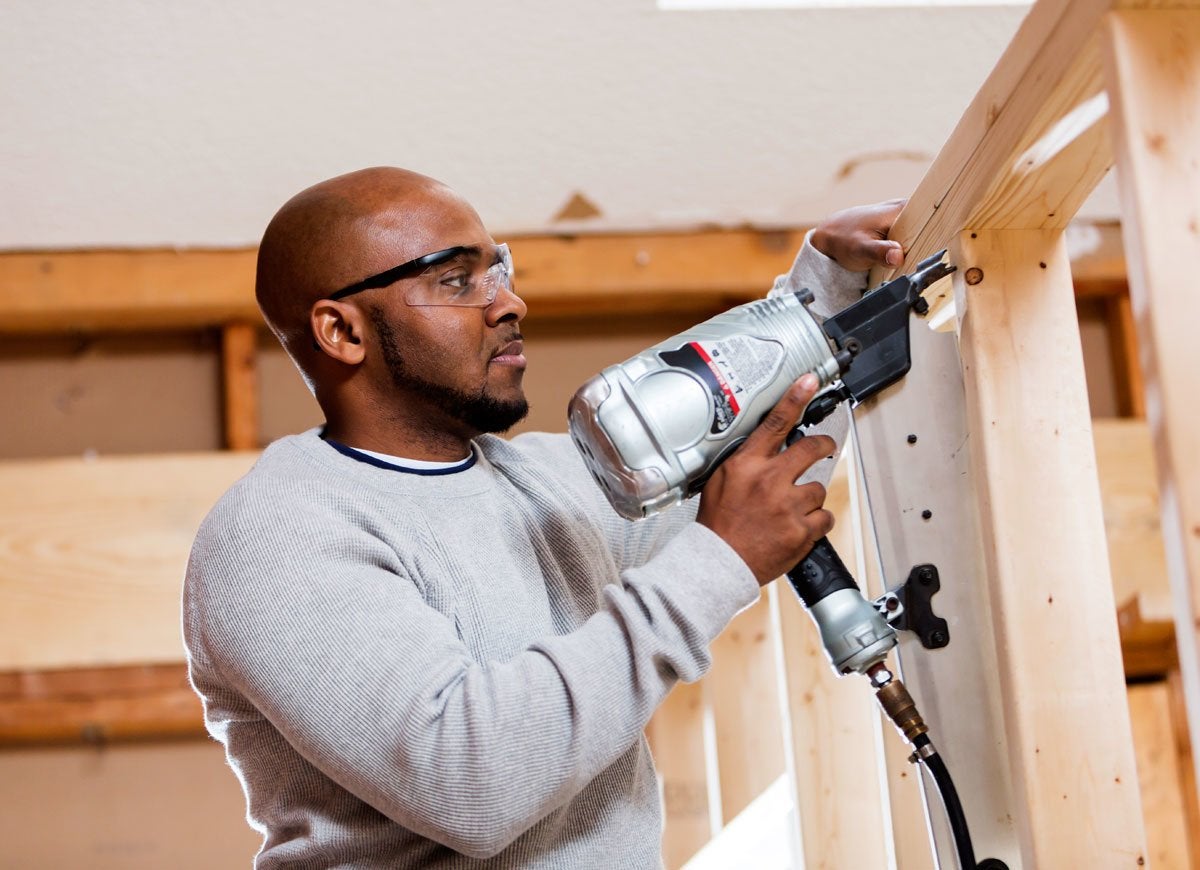
Home remodeling can be a pricey proposition. The bigger the renovation job, the more you should build into your budget for unexpected costs. Obtain written estimates for demolition and removal of construction debris; the cost of building materials, appliances, fixtures, flooring, cabinetry, and countertops; and the cost of necessary electrical, plumbing, and finishing work as well as any fees related to code compliance. If you’re hiring an outside contractor, make sure the estimate spells out all labor costs, insurance, change orders, and overage charges, and includes written warranties. Also, double-check that the estimate sets specific deadlines and payment terms.
Measure Twice, Cut Once

“Measure twice, cut once” is an old carpenter’s adage with a lot of truth behind it. Even half an inch can make a huge difference when fitting countertops, appliances, fixtures, and flooring materials. Many home improvement retailers offer free measuring services; take advantage of these offers whenever possible to prevent costly errors. If you’re cutting material on your own, have a friend take a measurement for you and compare it with your own measurement.
Purchase Quality Materials

Try to purchase the best materials you can afford, because budget items will cheapen the overall effect of your renovation. When choosing materials, consider style, color, durability, expected lifespan, moisture resistance, overall cost, and other factors related to a product’s specific function. Always opt for energy-saving appliances and water-saving plumbing fixtures, as these will save you money, add to the cachet of your home, and ultimately raise its resale value.
Prepare for Disruption
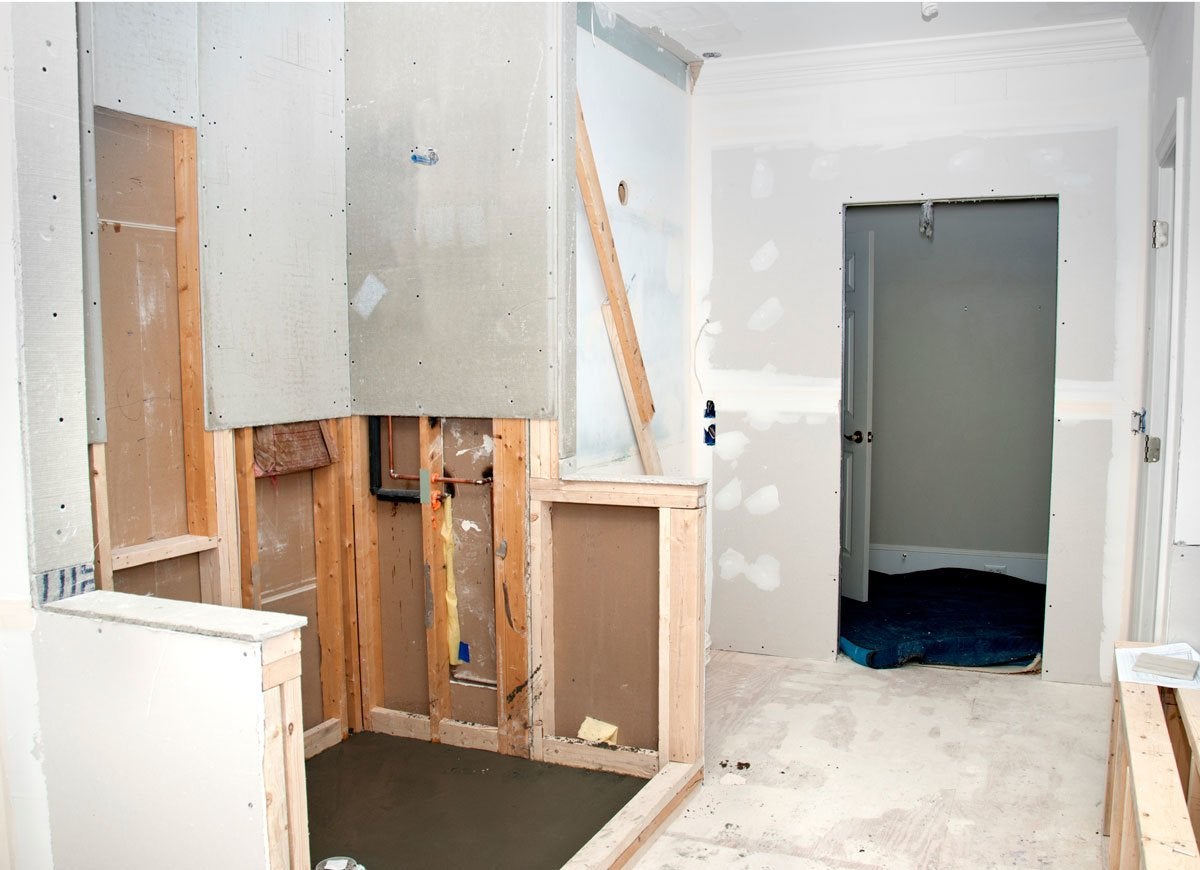
Remodeling is difficult, dusty, dirty work that causes disruption to your household. Make sure that everyone in the house is on board with some mess and inconvenience, and plan to complete the job in an appropriate amount of time. Prep as much as possible before major demolition and reconstruction to lessen the inconvenience to your family. Be patient with the process.
Choose the Correct Paint Finish

A coat of paint can freshen up any room, but choosing the proper finish is critical. High-moisture areas, such as bathrooms and the laundry room, require a gloss or semi-gloss finish. Flat paint works best for ceilings, while a washable eggshell or satin finish is desirable for walls. Semi-gloss lends an eye-catching appearance to moldings and trim.
Create Atmosphere with Lighting

To change the entire ambience of your home, try swapping out the lighting. Large overhead fixtures create a bold design statement, while accent lighting makes everyday tasks more comfortable. Replace outdated or broken fixtures with attractive modern ones, and consider energy-saving LED bulbs to help reduce your utility bills. Double-check that your electrical outlets and circuitry are up to code and can handle the demands of today’s technologies.
Don't Limit Your Space
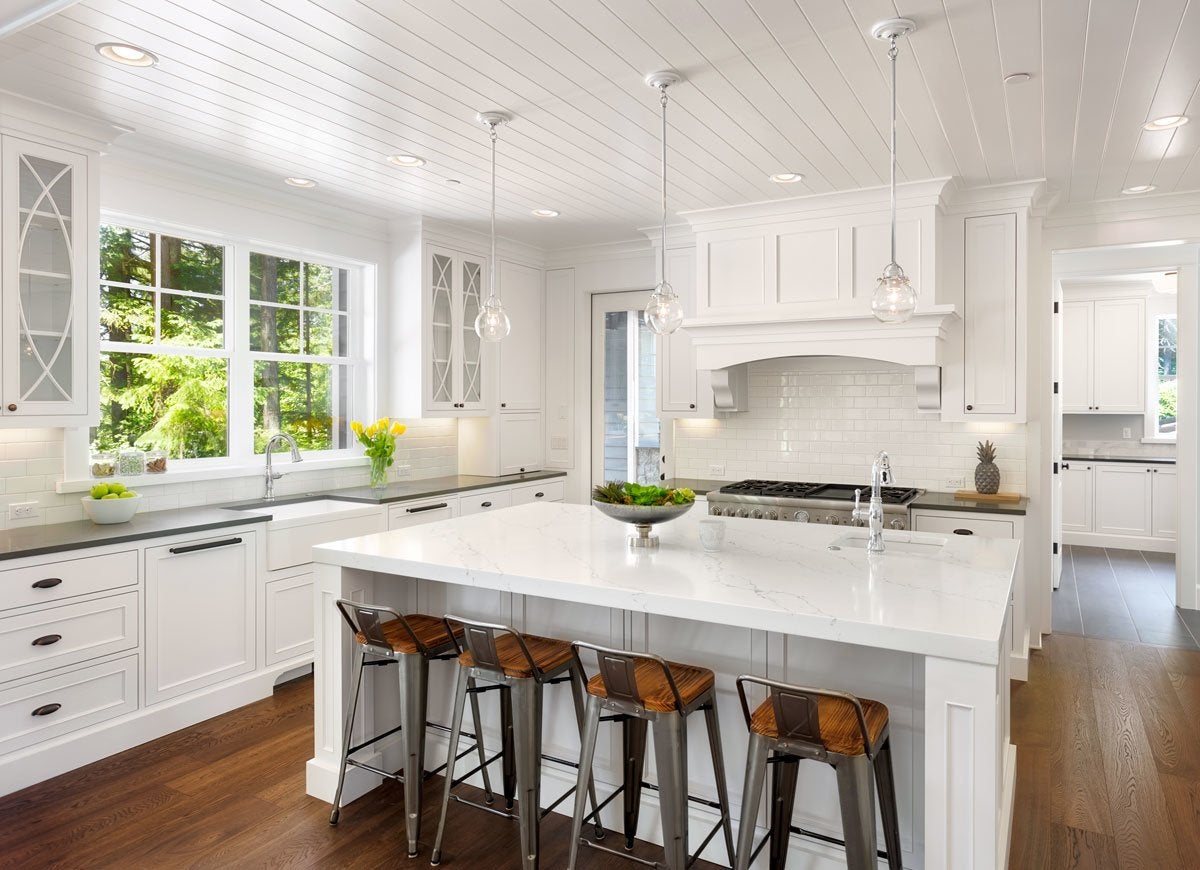
Homeowners are always searching for more space, but don’t try to squeeze in extra bathrooms or closets at the expense of your floor plan. Make sure to leave adequate square footage for doorways, hallways, and staircases, keeping in mind that bigger is usually better. When renovating bathrooms or kitchens, take advantage of the many inventive storage solutions available today, including corner cabinet pullouts, lazy Susans, drawer dividers, and shelving supports to extend counter space.
Related: These Impressive Before-and-After Photos Will Make You Want to Buy a Fixer-Upper
File Your Paperwork
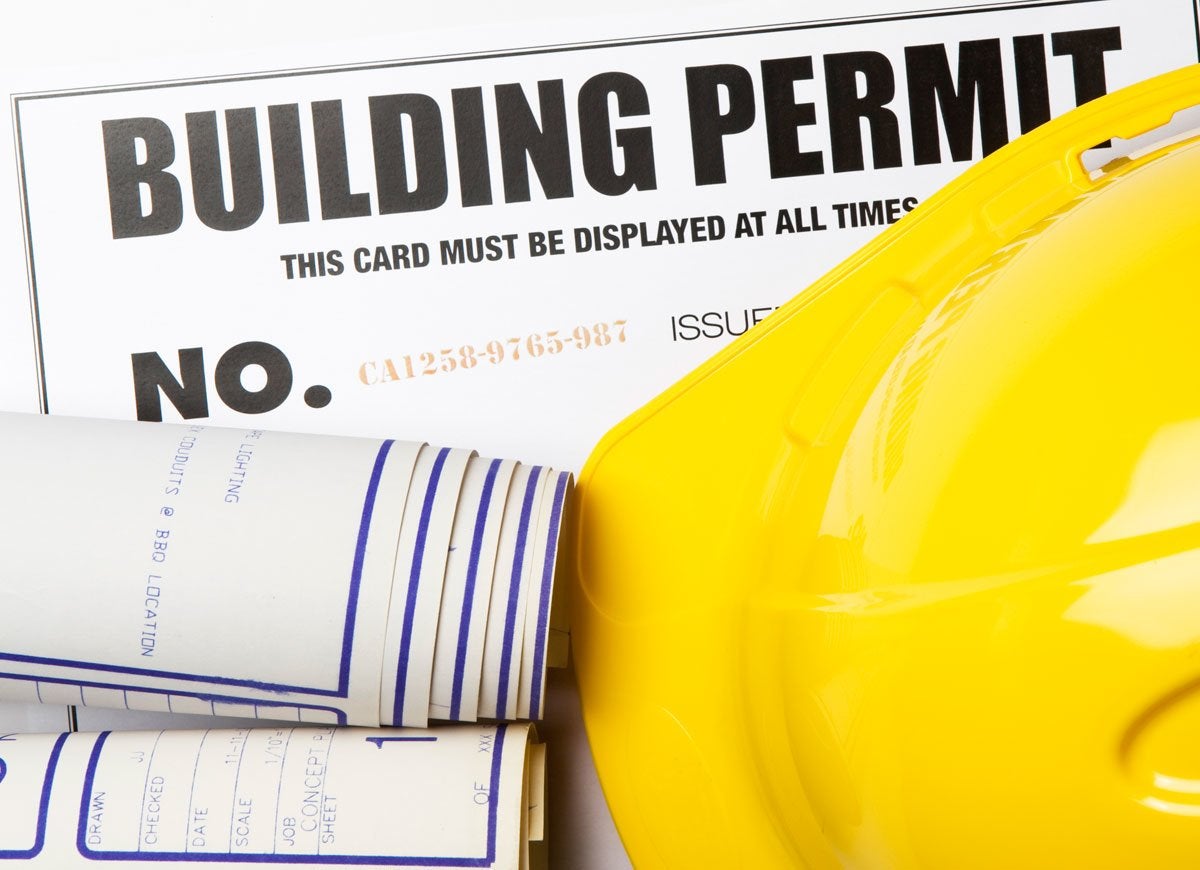
Any home improvement project that goes beyond cosmetic changes (like painting or wallpapering) probably requires a building permit. Make sure to obtain a permit whenever you make substantial changes to your home’s structure to ensure that the work is performed properly and in accordance with the municipal building code. If you undertake a project without a permit and something goes wrong, your homeowner’s insurance may not cover it.
Wear Protective Gear

To prevent accident or injury, wear protective gear when undertaking a DIY renovation project. This may include eye goggles, work boots, a hard hat, and a respirator. Sturdy gloves can shield your hands from splinters, nails, and debris, while earplugs help guard your hearing from loud construction noises. Avoid wearing loose-fitting clothing that could get caught in tools and machinery.
Related: 14 DIY Tools You’ve Never Heard of That Will Make Projects Easier
Take Safety Precautions

To prevent injuring yourself and others, take necessary safety precautions. Secure all loose tools and materials at the job site. Open windows and have adequate ventilation if you are painting, staining, or working with other chemicals. Never stand on the top step of a ladder, and rely on a spotter to steady the ladder. Have a first aid kit readily available, and locate the closest urgent care center or hospital emergency room before you begin the renovation project.
Know Your Limitations
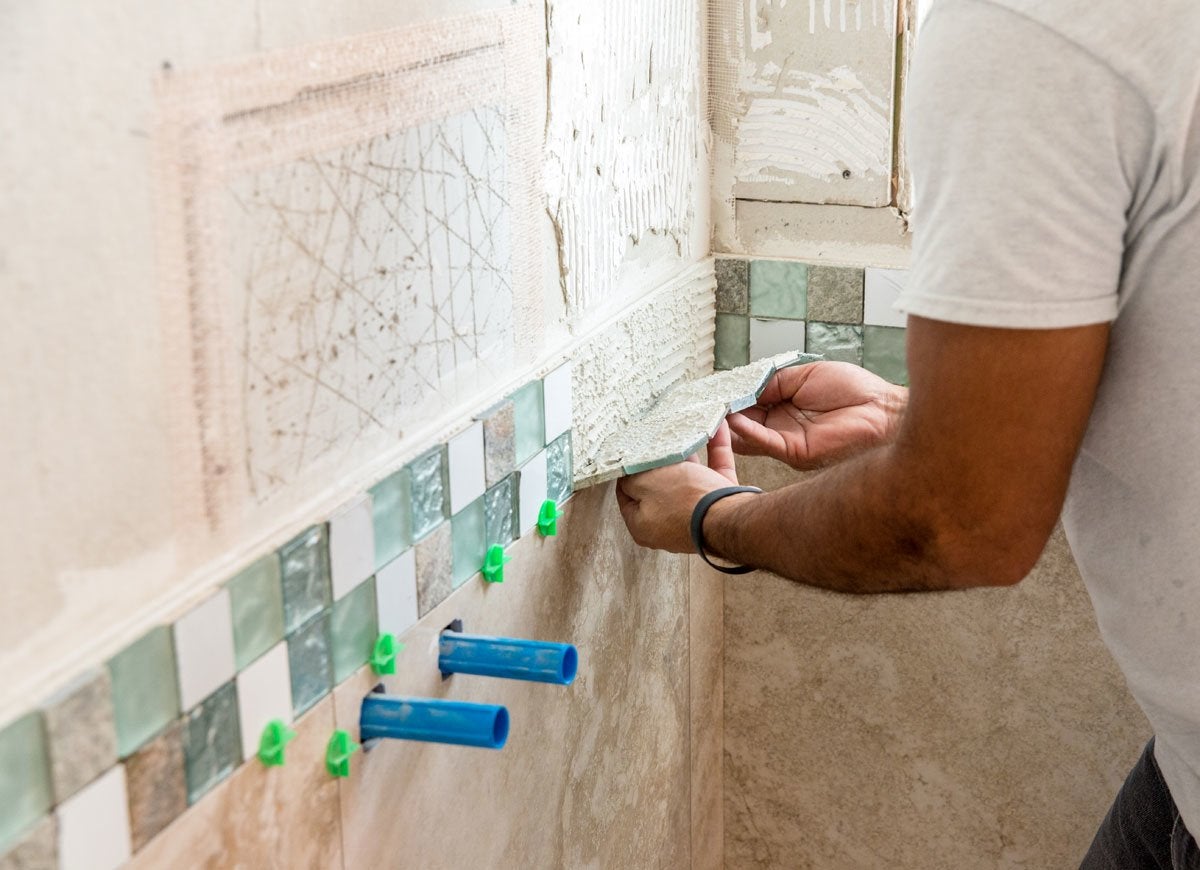
Not everyone is cut out to be a do-it-yourselfer, and even experienced DIYers can sometimes wind up with costly and time-consuming mishaps. Know your own limitations and never take on projects that are beyond your skill level. If you do decide to call in a pro, hire a reputable contractor, check references, and get multiple estimates.

This Is the Year for a Kitchen Renovation
Whether you’re selling or staying, everyone can get something out of a kitchen update. Learn why we consider this renovation the Most Valuable Project of 2025 and how to stay on budget.